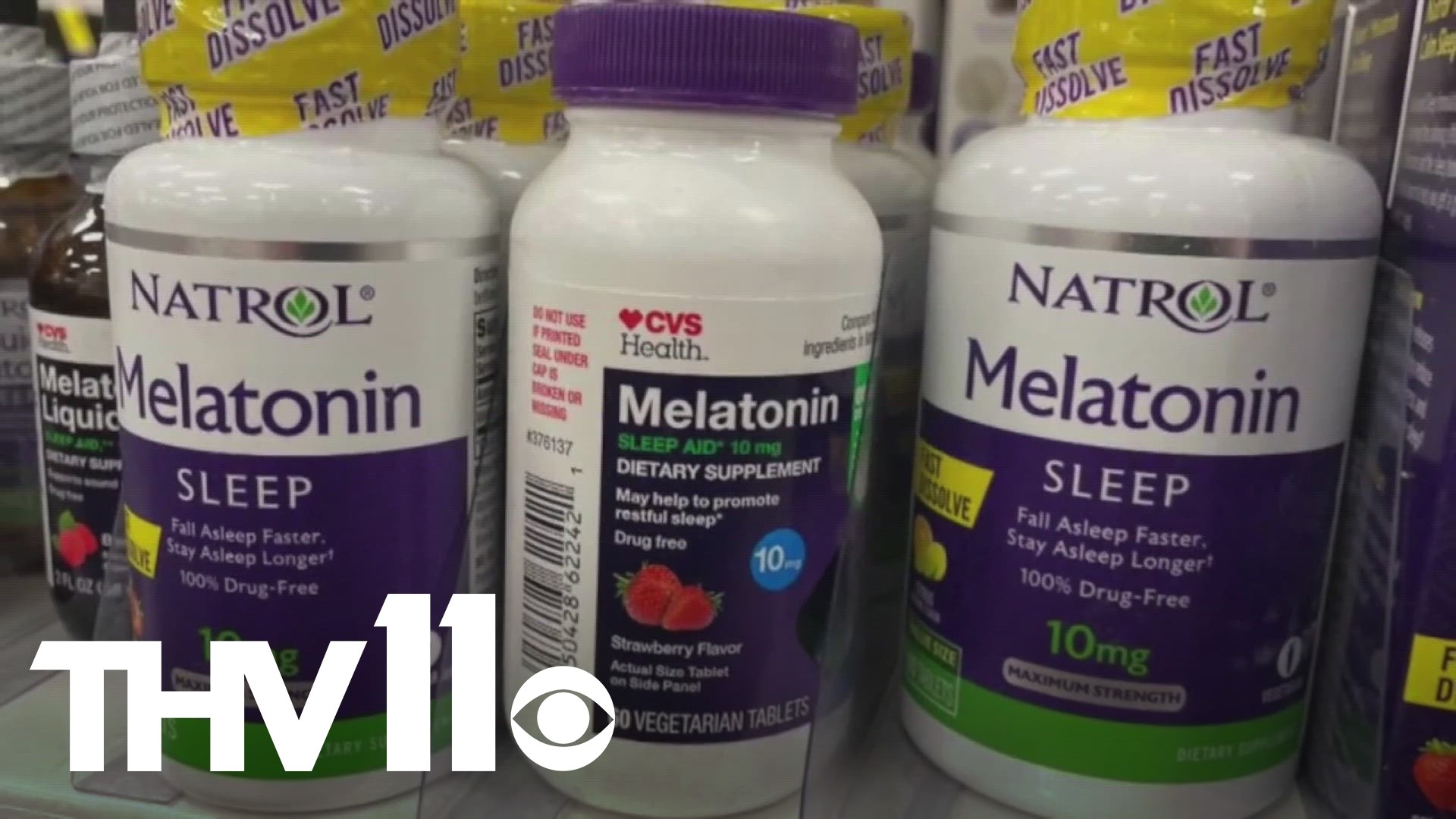LITTLE ROCK, Ark. — The shelves at pharmacies and health food stores are filled with an over-the-counter dietary supplement called Melatonin. It comes in tablet form, gummies, liquids, powders, and patches, with no prescription required.
It’s a subject of concern to the medical community after a surge in overdose cases among children and teens, especially during the pandemic.
Dr. Supriya Jambhekar is an Associate Professor of pediatrics at UAMS and Arkansas Children's Hospital. She’s also the medical director of the hospital’s sleep clinic.
Dr. Jambhekar said while melatonin is categorized as a dietary supplement, it’s not always clear what you’re buying.
“The melatonin that is available in the pharmacy is usually synthetic melatonin. It is not really a dietary supplement, and it is totally unregulated," Dr. Jambhekar said. "Because it's easily available and over the counter, most parents think that it's a safe medication."
A survey of 1,000 parents in 2023 found nearly 6% of preschoolers had been given melatonin and up to 19% percent of teenagers tried it or still use it, some for longer than a year. Dr. Jambhekar said that of the research available, melatonin appears to be safe for short-term use, but there aren't enough studies to know what happens in the long run.
According to the CDC, reports of melatonin overdoses have skyrocketed in recent years. Between 2012 and 2021, pediatric overdoses jumped more than 500%. Most of the children were treated at home and recovered, but some had to be hospitalized, and two children died.
Overdoses are among other concerns. Due to the fact that it’s an over-the-counter supplement, the FDA applies far less stringent oversight on melatonin than with prescription medications.
“It's very important to be careful when you're buying melatonin, knowing that it's not regulated, it may not have what it's claiming to have," Dr. Jambhekar said.
The 2023 study also discovered the melatonin quantity of any given dose can range from as little as 74% up to 347% more than what the label shows. According to Dr. Jambhekar, the study even resulted in a dose containing no evidence of the supplement at all, and one surprising additive.
“It showed that almost 88% of the preparations did not have what they claimed. Actually, one of the gummies did not even have melatonin in it. It had only CBD,” Dr. Jambhekar said.
Experts said that people who buy melatonin should look for what's called a USP verification mark on the label. USP stands for the “United States Pharmacopoeia”. The label is meant to ensure the product's purity, potency and stability.
Dr. Jambhekar said that melatonin can have its place in medicine, proving helpful to children with autism or an attention deficit disorder. She said any parent wishing to try the hormone is advised only to do so after consulting with their pediatrician.
"It could be other things that are going on that are causing this poor sleep, and can probably be dealt with better than just getting melatonin," Dr. Jambhekar said.

